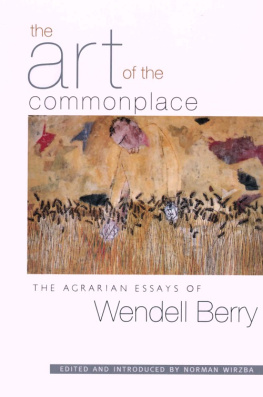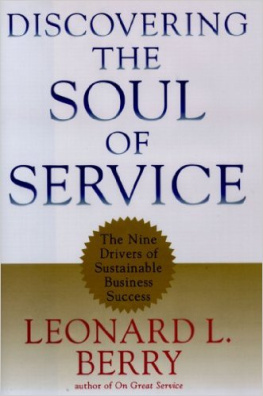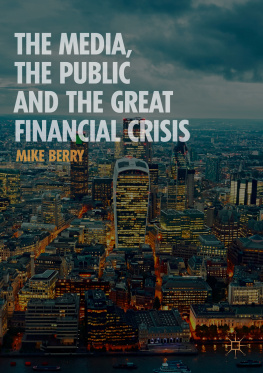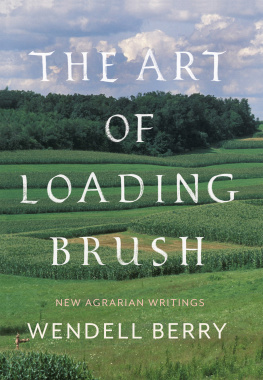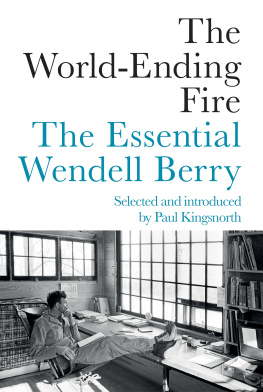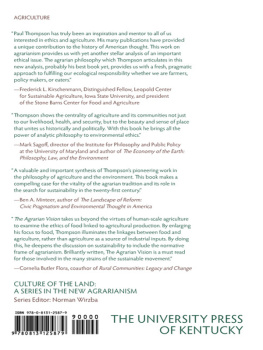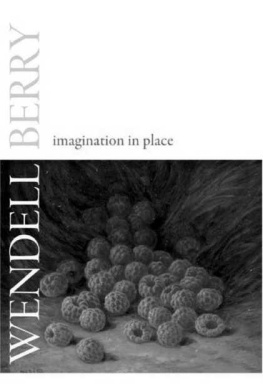Here is a human being speaking with calm and sanity out of the wilderness. We would do well to hear him.
The Washington Post Book World
The Art of the Commonplace gathers twenty-one essays by Wendell Berry that offer an agrarian alternative to our dominant urban culture. Grouped around five themes geobiography, an agrarian critique of culture, agrarian fundamentals, agrarian economics, and agrarian religion these essays promote a clearly defined vision that is compelling and of interest to people dissatisfied with the stress, anxiety, ill-health, and destructiveness of contemporary American culture.
Readers will find in these illuminating essays discussions on such questions as: why is agriculture becoming culturally irrelevant, and at what cost? What are the forces of social disintegration and how might they be reversed? How might men and women live together in ways that are to the benefit of both? And, how does the corporate takeover of social institutions and economic practices contribute to the destruction of human and natural environments? Whether it be through his staunch support of local economies, his defense of farming communities, or his call for family integrity, Berry emerges as the champion of responsibilities and priorities that serve the health, vitality and happiness of the whole community of creation.
The Art of the Commonplace
Also by Wendell Berry
FICTION
The Discovery of Kentucky
Fidelity
Jayber Crow
The Memory of Old Jack
Nathan Coulter
A Place on Earth
Remembering
Three Short Novels
Two More Stories of the Port William Membership
Watch With Me
The Wild Birds
A World Lost
POETRY
The Broken Ground
Clearing
Collected Poems: 19571982
The Country of Marriage
Entries
Farming: A Hand Book
Findings
Openings
A Part
Sabbaths
Sayings and Doings
The Selected Poems of Wendell Berry (1998)
A Timbered Choir
Traveling at Home ( with prose )
The Wheel
ESSAYS
Another Turn of the Crank
A Continuous Harmony
The Gift of Good Land
Harlan Hubbard: Life and Work
Life Is a Miracle
The Hidden Wound
Home Economics
Recollected Essays: 19541980
Sex, Economy, Freedom and Community
Standing by Words
The Unforeseen Wilderness
The Unsettling of America
What Are People For?

Copyright 2002 by Wendell Berry
Introduction copyright 2002 Norman Wirzha
All rights reserved under International and Pan-American Copyright Conventions. No part of this book may be used or reproduced in any manner whatsoever without written permission from the Publisher, except in the case of brief quotations embodied in critical articles and reviews.
Library of Congress Cataloging-in-Publication Data
Berry, Wendell, 1934
The art of the commonplace : agrarian essays of Wendell Berry / edited and introduced by Norman Wirzha.
p. cm.
ISBN 1-58243-146-9 (alk. paper)
1. Agriculture United States. 2. Agriculture Economic aspects
United States. 3. Agriculture Social aspects United States.
1. Wirzba, Norman. II. Title.
S441 .B47 2002
630'.973 dc21 20020007224
FIRST PRINTING
Jacket and text design by David Bullen Design
Printed in the United States of America on acid-free paper that meets the American National Standards Institute z3948 Standard.
COUNTERPOINT
P.O. Box 65793
Washington, D.C. 20035-5793
Counterpoint is a member of the Perseus Books Group
10 9 8 7 6 5 4 3 2 1
Contents
by Norman Wirzba
The Challenge of
Berrys Agrarian Vision
Novalis, the German romantic poet and philosopher, once remarked that all proper philosophizing is driven instinctually by the longing to be at home in the world, by the desire to bring to peace the restlessness that pervades much of human life. Wisdom, within this view, and therefore also happiness and well-being, rest on the ability to transpose the alienation and fragmentation that characterize life into a marriage of nature and spirit, or as William Wordsworth described it, a wedding between the human mind and this goodly universe.
By most accounts, our efforts toward homecoming have ended in failure. Our unprecedented prosperity, rather than being founded in a convivial wholeness with the earth and with others, is predicated on the systematic exhaustion or destruction of lifes sources soil, water, and air and the communities that inspire, define, and support our being. Our failure as evidenced in flights to virtual worlds and the growing reliance on life-enhancing drugs, antidepressants, antacids, and stress management techniques suggests a pervasive unwillingness or inability to make this world a home, to find in our places and communities, our bodies and our work, a joyful resting place. Perhaps even worse, we are training generations of children to see our anxiety-ridden ways as the norm.
Among contemporary writers, few have seen and described as clearly the causes and effects of our dis-ease as has Wendell Berry. In poetry, fiction, and essay he has not only characterized the destructive effects of our general homelessness but, more important, has also promoted a cogent and viable alternative in the form of agrarian thought and practice. Agrarianism, rather than being a quaint throwback to an impossible pastoral arcadia, is, in the hands and mind of Berry, a necessary and practical corrective to the waywardness of modern industrial culture. Agrarianism, in other words, promises a path toward wholeness with the earth, with each other, and with God, a path founded upon an insight into our proper place within the wider universe.
No doubt, an argument for agrarian life will sound old-fashioned. Most of us, after all, are urbanites, and so represent the culmination of a migratory trend that is unparalleled in human history. The exodus from country to city, now accomplished in developed countries and well on its way in the rest of the world, is seen by many as the necessary prerequisite for human freedom and progress. But given the enormity of implication and consequence that follows from a loss of intimate and practical connection with the earth (consider the general ignorance about our interdependence with other organisms), should we not at least pause to consider the cultural significance of the eclipse of agrarian sensibilities? It is Berrys contention that in abandoning what almost every culture has assumed and lived that we are creatures intertwined in a common life with others we bring harm to ourselves and the earth.
If we are to take agrarianism seriously, we must address two concerns. First, we must consider how the loss of agrarian ways is of broad cultural significance. And second, we must indicate how the recovery of agrarian principles and responsibilities can be a source for personal and cultural renewal.
* * *
... Within things
there is peace, and at the end
of things. It is the mind
turned away from the world
that turns against it.
(Wendell Berry, Window Poems 19)
In the early essay A Native Hill, Berry remarked that history testifies to an intransigent destructiveness within us that prompts us to place our wellbeing in contention with the well-being of others and the earth. We have assumed that we can know and pursue what is best for ourselves, all the while disregarding the needs of the communities, natural and human, that sustain us. The destructiveness of our much-touted progress has not always been widely apparent, especially in earlier times when the scale of the earths bounty greatly outweighed our demands upon it. The destructiveness has now become unmistakably and unavoidably clear, however, particularly if we consider that many of the worlds habitats and communities are in a condition of severe crisis as evident in soil erosion and toxification, water contamination and depletion, air pollution, deforestation, species extinction, destruction of rural communities, homogenization or decimation of indigenous cultures, and social cynicism and hopelessness. Though more of us than ever before live a life of luxury and ease, fewer of us can claim that our lives are permeated with peace and joy. The frantic, stressful striving going on all around us indicates that we are profoundly lost. We seem unable to ask with any seriousness or depth the question of what all our striving is ultimately for.
Next page
